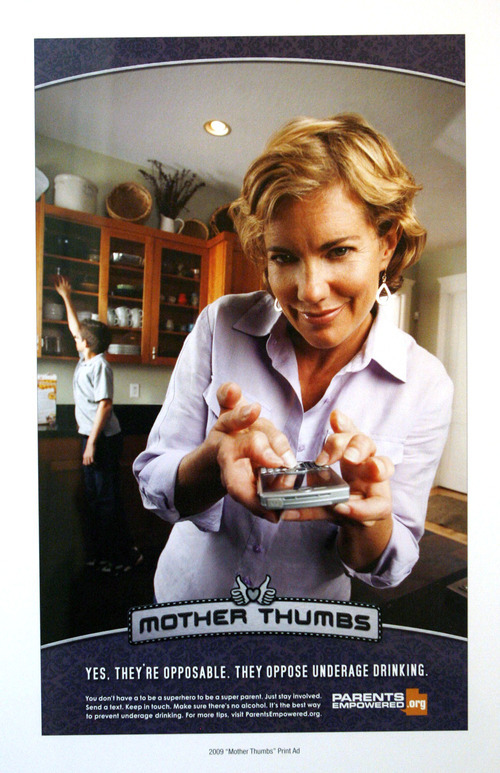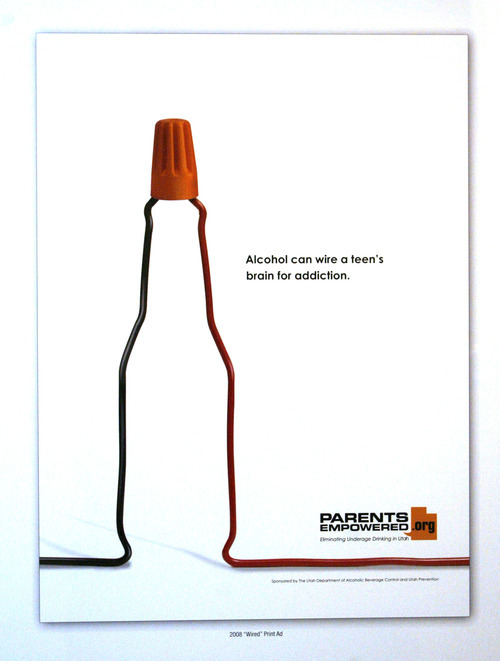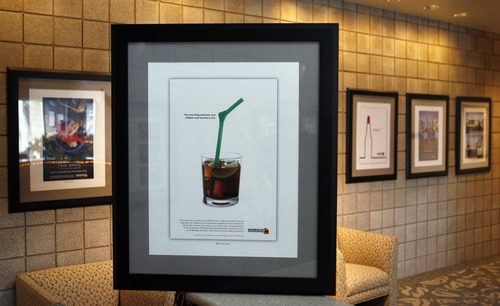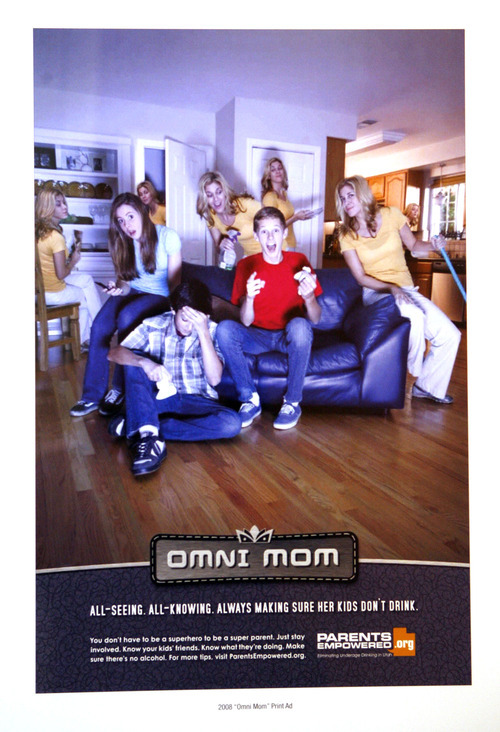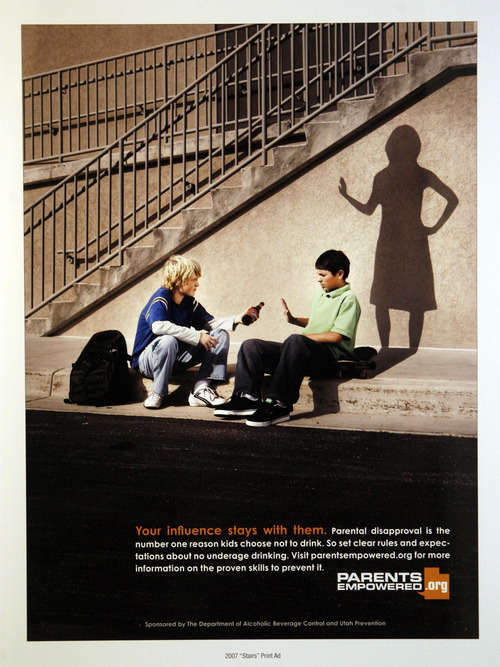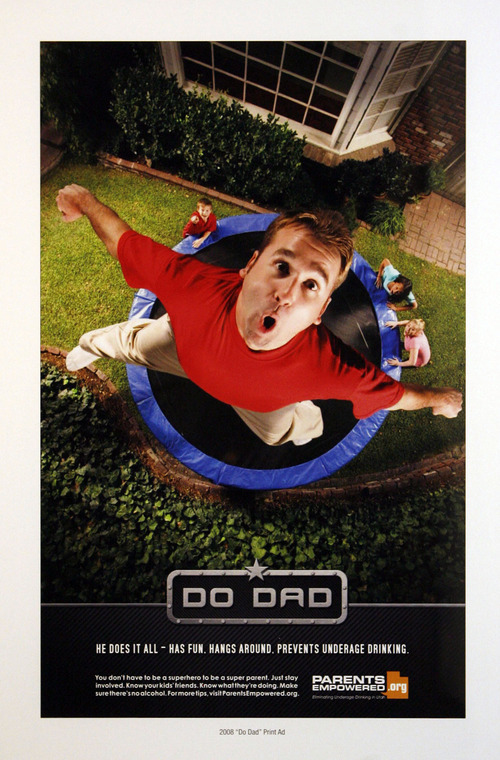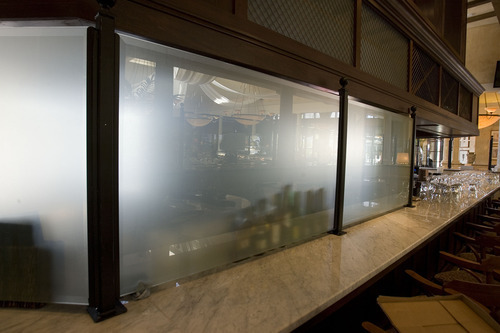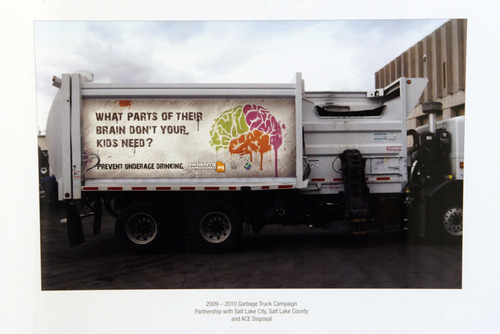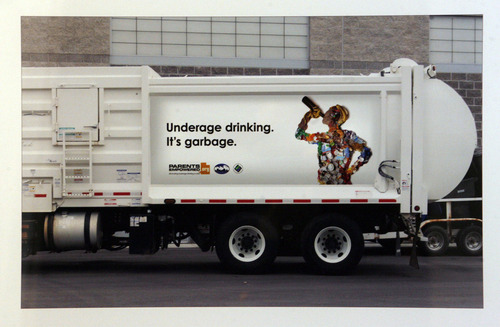This is an archived article that was published on sltrib.com in 2012, and information in the article may be outdated. It is provided only for personal research purposes and may not be reprinted.
If you're not sure how serious Utah officials are about stopping teen drinking, drop by the headquarters of the state's liquor monopoly.
Nearly every framed picture — all 19 of them — depicts various anti-teen-drinking campaigns. Brochures, bookmarks and information packets explaining dangers of underage drinking are available at the reception desk.
Lawmakers are pouring millions of dollars into the media campaigns, and they've passed laws such as the so-called Zion curtain, which hides bottles of beer and liquor from public view in restaurants, in an effort to stop teen drinking.
Police are stepping up enforcement as well.
In January, 10 eateries and bars were temporarily shut down or fined after servers brought alcohol to minors working for law enforcement, dubbed cubs. Normally, the Utah Department of Alcoholic Beverage Control prosecutes three or four cases each month involving underage cub buys.
A team of 15 officers from the Utah Department of Public Safety routinely conduct undercover stings. Local police also are empowered to conduct checks.
Selling alcohol to a minor is a "serious" offense, with penalties ranging from a five to 30-day license suspension and fines from $500 to $3,000.
Hersh Ipaktchian, founder of Iggy's Sports Grill, said eateries are doing all they can to train servers. But when violations occur, the establishment is stuck with hefty penalties while the server usually is fined only $100. Eateries often fire servers who provide alcohol to minors, he added, but they can easily get another job elsewhere.
"There should be a much bigger penalty for servers," he said. "This is what will cut down on the problem."
There are no moves at the Utah Department of Alcoholic Beverages or the Legislature to beef up penalties against offending servers. But the department has allowed eateries with first offenses the option of a license suspension or fine.
In addition, lawmakers overwhelmingly voted two years ago to bring back Zion curtains, despite the dearth of research to show that the barriers have any effect on teen drinking.
Lawmakers also approved tying the number of liquor licenses that can be allocated to the number of public safety officers, beginning in July. Even if licenses become available because of quotas based on the state's population, permits cannot be awarded unless the Department of Public Safety hires additional alcohol enforcement officers.
Art Brown, president of the Utah Chapter of Mothers Against Drunk Driving, said additional officers will most certainly be hired because money for the new positions will come out of alcohol sales, not the department's own budget.
"The intent of the law is to make sure that as the number of licenses go up, the number of agents also will go up," said Brown, who pushed for the legislation. "The funding will always be there."
The number of officers needed involves a complicated formula using statewide population figures, divided by the number of liquor licenses, which includes restaurants, clubs, hotel banquet permits, reception centers and taverns. Bottom line: There must be one agent for every 52 licenses.
If the law were in effect today, the department would have to employ 27 "designated" alcohol enforcement officers to cover for the state's 1,378 licensees. Currently the department employes 27 designated officers to conduct liquor stings and drunk-driving patrols. But as more licenses are allocated, more officers will have to be hired.
Another state law designed to stop underage drinking involves scanning devices.
In Utah, the penalty for failing to electronically verify licenses of anyone who looks 35 years or younger is akin to serving alcohol to a minor. Failure to use a scanning device at a club or tavern carries the same penalties as serving alcohol to a minor —whether or not the individual served is over 21, the legal age to imbibe
In addition, the state has allocated more than $9.3 million in the past six years to ParentsEmpowered, a media and education campaign to help parents understand the dangers of teen drinking. Research shows parental disapproval of underage drinking is the No. 1 reason youth choose not to drink, say program officials.
Twitter@DawnHouseTrib —
Tips to avoid underage drinking
The Power of parents • Teenagers listen to their parents more than anyone else.
Bonding • Children who feel close to their parents are less likely to drink.
Boundaries • Parents need to set clear rules and expectations about underage drinking.
Monitoring • Know where your children are, who they're with and what they are doing.
Source: ParentsEmpowered.org


